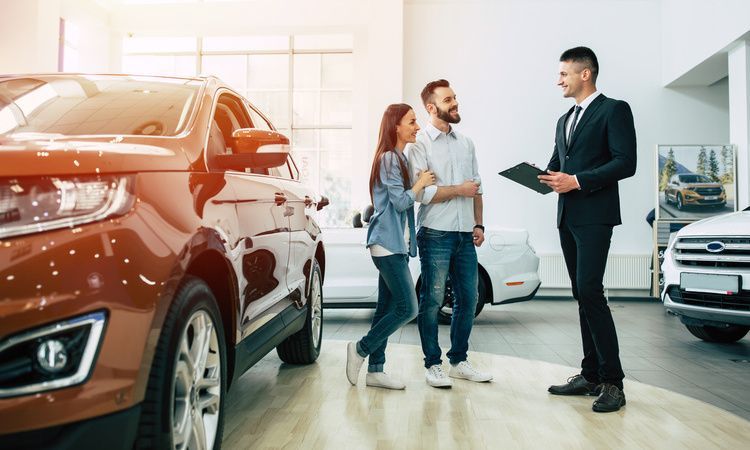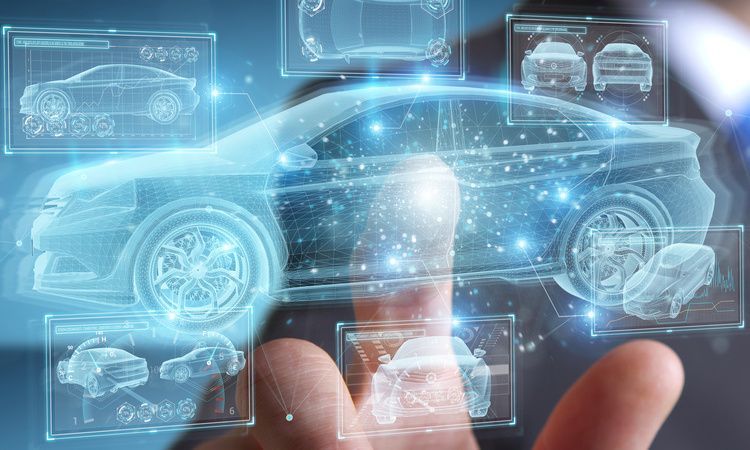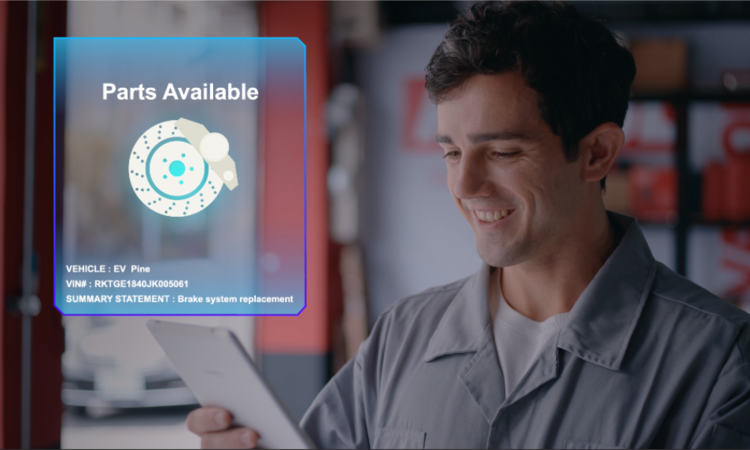Connected Car Technologies: Great Tools and Opportunities for Dealers

Connected car technologies bring with them many game-changing benefits, conveniences, and opportunities for car owners, drivers, and automakers. Moreover, they offer car dealerships various opportunities to improve the quality of their services, to ensure prompt response and delivery of customer's repair and maintenance needs, and to become more efficient in their performance.
We are talking about connected car technologies like Over-the-Air (OTA) and remote diagnostics, in-vehicle networking, and Advanced Driving Assistance Systems (ADAS). These systems generate data that can be used by auto dealers to better understand how consumers purchase and use cars. This, in turn, helps dealers provide better customer experience.
Needless to say, the wealth of data that dealers get from connected car technologies opens up a whole new world of possibilities for the automotive value chain. Dealers and auto retailers need to use digitalization and technology to transform their business and make it highly efficient, to make customer delivery fast and accurate, and to eliminate errors.
How Dealers Apply Connected Car Technologies in Pre-Sale
Demonstration and Sale
With connected car technologies, demo cars can be programmed to display an app bearing the dealership’s logo. They can show a suggested route for test-drive and greet a customer by name using data sent by the dealership's sales representative. This demo app is synchronized to the driver. It provides audio comments that can highlight the features that customers are looking for the most.
That means dealers will be able to manage demo cars via a booking application. Through an app, they can track a car's availability, its location when out for a test drive, its maintenance needs, among others. A vehicle that is not returned can easily be located and retrieved. Dealers can also implement additional sales tools like exclusive test drive schedules.

By using authorized connected car data, car dealerships get to provide excellent customer service to clients.
Finance and Insurance
Dealers offer customers finance and insurance products that are based on the vehicle and the use of a vehicle.
For example, they can offer customers a connected lease that allows them to earn rebates if they use up fewer miles than expected within a certain period. Or they can offer connected insurance products that are adjusted based on their driving behavior and mileage.
Dealers can offer customers credits, too, which they can earn with good car maintenance practices. Meanwhile, customers who are past due can get in-vehicle reminders. Car repossessions are also easy, with dealers being able to locate the vehicle and immobilize it.
How Connected Car Technologies Benefit Dealers in Post-Sale
By using connected authorized car data, car dealerships get to provide excellent customer service to clients, which then becomes the basis for a long-term relationship with them. More specifically, connected car technologies allow dealers to:
- Address post-sale issues and inquiries easily and conveniently
New car owners will always have questions about the features, how to operate the apps, the maintenance instructions and schedules, etc. And when they do, they can always ask their dealers and their dealers can always send them video tutorials and other resources via the available apps. And because data are integrated with scheduling and other systems, customers really don’t need to memorize anything. All they need to know is just a click away, and this, in itself, makes everything convenient for dealers.
- Proactively schedule maintenance and service events
With connected car data, dealers can determine when periodical maintenance and other services are necessary even before car owners experience any related trouble. This way, they can schedule and plan these events with the car owners in advance.
For example, dealers would know when it is time for a car's 30,000-mile maintenance service based on its actual mileage and not on an estimate. They can then remind customers or send them an alert about it and decide on a schedule. The same thing goes for services related to tires, oil and fluid levels, and batteries, too.
- Review a car’s maintenance and services needs in advance to ensure availability of parts needed
By using a connected car’s data, specifically vehicle health indicators and diagnostic codes, dealers can review its maintenance and services needs well ahead of time and therefore anticipate the need for certain car parts and accessories. This will allow them to better manage their supply of parts and facilitate the procurement of those parts that they don’t have in stock. This way, they won’t scramble to look for and obtain the much-needed parts elsewhere, thus eliminating waiting time.
- Provide roadside assistance quickly
With the help of connected car data, including location information and vehicle diagnostic codes, dealerships will be able to provide prompt and efficient roadside assistance to drivers whenever needed.
For example, they will be able to know where a connected car broke down and what had caused it. This way, they can dispatch assistance to the location right away and fix the vehicle.
When they head out, mechanics will know what necessary tools and parts to bring. They also won't have to spend a lot of time troubleshooting or figuring out what went wrong.
As a matter of fact, dealers can even predict repair and maintenance needs, and warn customers about possible events to help them avoid incidents in the future.
- Deliver Over-The-Air updates and solutions
When new software, firmware, or system updates are available, a vehicle’s system will be able to receive them automatically. There is no need for dealerships to contact a customer, bring their car in, and install the latest version of a technology or a system solution. This means convenience for all parties. With OTA solutions, bugs get fixed and system glitches are avoided, drivers get access to new features and new apps, and the built-in technologies are able to run more smoothly without hassle for everyone. These OTA solutions are delivered while drivers are sleeping and cars are parked in the garage.
- Create personalized and optimized maintenance and warranty package for customers
Dealers could use data regarding a vehicle owner's driving patterns and the car's actual condition to create personalized extended warranty packages and optimized dealership maintenance packages. This is a good way to incentivize drivers who are careful and cautious when they are on the road and who are always prompt and punctual when it comes to taking their car for routine maintenance services.
Offering such packages and incentives will allow dealers to foster great relationships with their customers.
Cox Automotive relates that 85% of car buyers say that their likelihood of purchasing another vehicle from the same dealer is influenced by their experience with its service department. All these offerings would help dealerships build a trusting, long-lasting relationship with their buyers. Because of that, buyers would consider their dealers as a trusted advisor when it comes to vehicle services and would look to them when it comes to finding their next perfect car.
What’s more, happy and satisfied connected car customers will recommend their dealership to friends, family, colleagues, and business or professional contacts. And everyone knows there’s nothing better than word-by-mouth advertising. Once recommendations take off and get converted to actual sales, they will create a network of customers that only keeps on expanding.

Dealerships will be able to provide prompt and efficient roadside assistance to drivers whenever needed.
Get Ahead of Competitors
Customers who are looking for the perfect car will always go for the one with latest technologies available. So, dealerships who have gone the connected cars route have an advantage. Connected cars have everything one could need in a fast-paced digital world – mainly convenience and safety in ways they haven't seen or experienced before. In fact, according to a McKinsey study, a great number of people are willing to switch car brands for better connectivity features.
As such, dealerships that come early into the connected cars business have an edge over their traditional competitors. Compared to others, car dealers that utilize connected car data are better equipped to:
- deliver efficient and prompt customer services,
- manage their inventory,
- provide assistance to customers,
- promote road safety, and
- establish long-term customer relationships.
All these would make them a more preferred choice among customers.
Moreover, connected car dealers are able to adjust earlier to a new era of automotive sales and a new business model. Getting familiar with all the technologies applied in vehicle connectivity has its learning curve, and when the time comes when connectivity has become the norm (which is inevitable), dealerships that were in the game first have already mastered everything – and maybe gearing up for the next batch of technologies – while those that came in late are still adjusting or transitioning.
The Bottomline
A growing number of carmakers are embracing connectivity and digitalization, and it is just a matter of time before all vehicles manufactured are connected vehicles. So, car dealerships would do well to adapt the use of connected car data and take the first steps toward a technologically advanced business model.
For any dealership, one of the main goals is always to provide excellent customer service, and with connectivity, this goes beyond just offering high-quality and reliable products, being accommodating to buyers, and being responsive to their concerns.
For one, connectivity offers a dealership the opportunity to anticipate its customer’s needs even before they know what these needs are. And this is possible through features like predictive maintenance, proactive scheduling, and remote diagnosis. Connectivity allows dealers to address issues before they actually become issues.
Connectivity also offers a dealership the opportunity to extend and expand its relationship with a customer and make it into a long-term one. Gone are the days when a customer’s relationship with a dealer ends the moment the vehicle leaves the store or is limited to when routine maintenance services become necessary. With connectivity, this relationship continues.
A customer constantly gets updates, alerts, reminders, notifications, and assistance from the dealer through various apps, so they are also connected in one way or another. Moreover, with dealers getting data on a customer’s driving behavior and maintenance practices, they can always come up with personalized incentives and services packages.
Overall, dealers get to contribute to an enhanced customer experience and at the same time enjoy convenience. They can guarantee customer satisfaction without spending too much time performing certain tasks. All thanks to technology and the power of connectivity. In the long run, all these will translate to repeat purchases from the same customers – meaning, more profits using less efforts.
